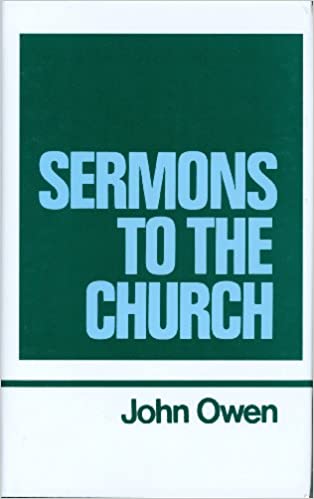A Brief Book Summary from Books At a Glance
by Steve West
Editor’s Note: Most of our readers will already be at least somewhat acquainted with John Owen (1616-1683), “the prince of Puritans,” but it is not likely that many have read him extensively. His works are not only voluminous – they are tightly packed and deeply considered. Owen is neither quick nor light reading!
Today we continue our year-long series of summaries of Owen’s famous works. We trust these will be of help in introducing and/or increasing your acquaintance with this giant Puritan theologian.
Summary, Part 1
Posthumous Sermons
A Sermon Published 1690
Jeremiah 51:5 “For Israel hath not been forsaken, nor Judah of his God, of the Lord of hosts; though their land was filled with sin against the Holy One of Israel.”
This is a promise that God would restore his people from their exile in Babylon. All that is said of Babylon in the Old Testament applies to the Church of Rome in Revelation. Babylon was the source of idolatry and the first nation to persecute the true church for its religious beliefs. Rome is the place of manmade idolatry and saint-worship, and the source of persecution of true evangelical worship. When we fill the land with sin, we sin against the Holy One; he is God, the Lord of Hosts (the titles are not redundancies but help us see his greatness). Despite the people’s sin, this is their covenant-keeping God and his faithfulness is the grounds for their faith. When a land is filled with sin it may be utterly destroyed, but its only hope is the sovereign will of God. A land may be filled with sin so that it will be annihilated without remedy (like Sodom), filled with sin so that judgment will come but not total destruction, or filled with sin so that the word is not governing. In this latter state, pray for revival and reformation that may turn away judgment.
Lands are filled with sin when every type of provoking sin is found amongst every class of people, and there is no doubt that England is in this position. God has given us mercies and warnings—plague, fire, war, and signs in heaven—but our nation has not turned. Like apostate Israel, we look to alliances with our enemies and the enemies of God. There is evidence, however, that England is not totally forsaken (e.g., the discovery of the Popish plot and the reaction to pursue justice in its wake). Divine Providence yet holds the nation together in unity, and God has given us time and space to repent. There is still a remnant who pleads and prays for mercy and reformation, both for themselves and the nation, and there is yet a public acknowledgment of God (even though we fear it is not deep enough). Without prayer, confession, and concrete labor for reformation, England will not be saved, so let us be in earnest and call on the name of the Lord. . . .
[To continue reading this summary, please see below....]The remainder of this article is premium content. Become a member to continue reading.
Already have an account? Sign In
